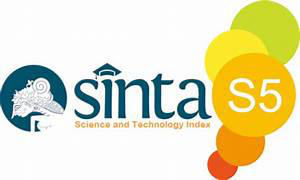EFEKTIVITAS DRAMA SEBAGAI METODE PENGAJARAN KEMAHIRAN BERBICARA BAHASA JEPANG PADA MAHASISWA
Abstract
References
Afrom, I. (2018). Pengaruh Metode Pembelajaran Problem Solving Pada Pendidikan Seni Drama
di PRODI PGSD Universitas Muhammadiyah Palangkaraya. Pedagogik: Jurnal Pendidikan,
(2), 12–17. https://doi.org/10.33084/pedagogik.v13i2.863
Baihaqi, I., & Baihaqi, I. (2019). Pembelajaran Drama dengan Metode Role Playing Berbasis
Project Learning bagi Mahasiswa PBSI Universitas Tidar. CaLLs (Journal of Culture, Arts,
Literature, and Linguistics), 5(2), 83–94. http://ejournals.unmul.ac.id/index.php/CALLS/article/view/2710
Media Bahasa, Sastra, dan Budaya Wahana
https://journal.unpak.ac.id/index.php/wahana/index
Volume 30, Nomor 1Tahun 2024
ISSN: 0853-5876 / E-ISSN: 2622-4356
Dewojati, Cahyaningrum. 2010. Drama: Sejarah, Teori, dan Penerapannya. Yogyakarta: UGM
Press
Holden, Susan. 1982. Drama in Language Teaching. Longman.
Sutedi, D. (2009). Penelitian Pendidikan Bahasa Jepang. Humaniora.
Yeni, Y., Suartini, N. N., Sadyana, I. W., & Hermawan, G. S. (2020). Pembelajaran Kaiwa
Berbasis JFS Can-Do. Jurnal Pendidikan Bahasa Jepang Undiksha, 6(1), 124.
https://doi.org/10.23887/jpbj.v6i1.25540
Yumurtazi, Nergis. 2021. Using Creative Drama In Teaching English To Young Learners:
Effectiveness On Vocabulary Development and Creative Thinking. Faculty of Educational
Science, English Language Teaching Department, Bahcesehir University. Ilkoretim Online
Yuniarsih, Ristiawati, T., & Fauziyyah, F. (2021). Project Based Learning dalam Pembelajaran
Kaiwa di Masa Pandemi. … Journal of …, 7(September), 97–107. https://ejurnal-mapalusunima.ac.id/index.php/socul/article/view/2915%0Ahttps://ejurnal-mapalusunima.ac.id/index.php/socul/article/download/2915/1222
Yuniarsih, Y., Ristiawati, T., Asih, N. S. F., Fauziyyah, F., & Irawan, V. S. (2022). Efektivitas
Bahan Ajar Kaiwa II Berbasis Project Based Learning. J-Litera: Jurnal Kajian Bahasa,
Sastra Dan Budaya Jepang, 4(2), 22–37
DOI: 10.33751/wahana.v30i1.10228
Refbacks
- There are currently no refbacks.

This work is licensed under a Creative Commons Attribution-ShareAlike 4.0 International License.













